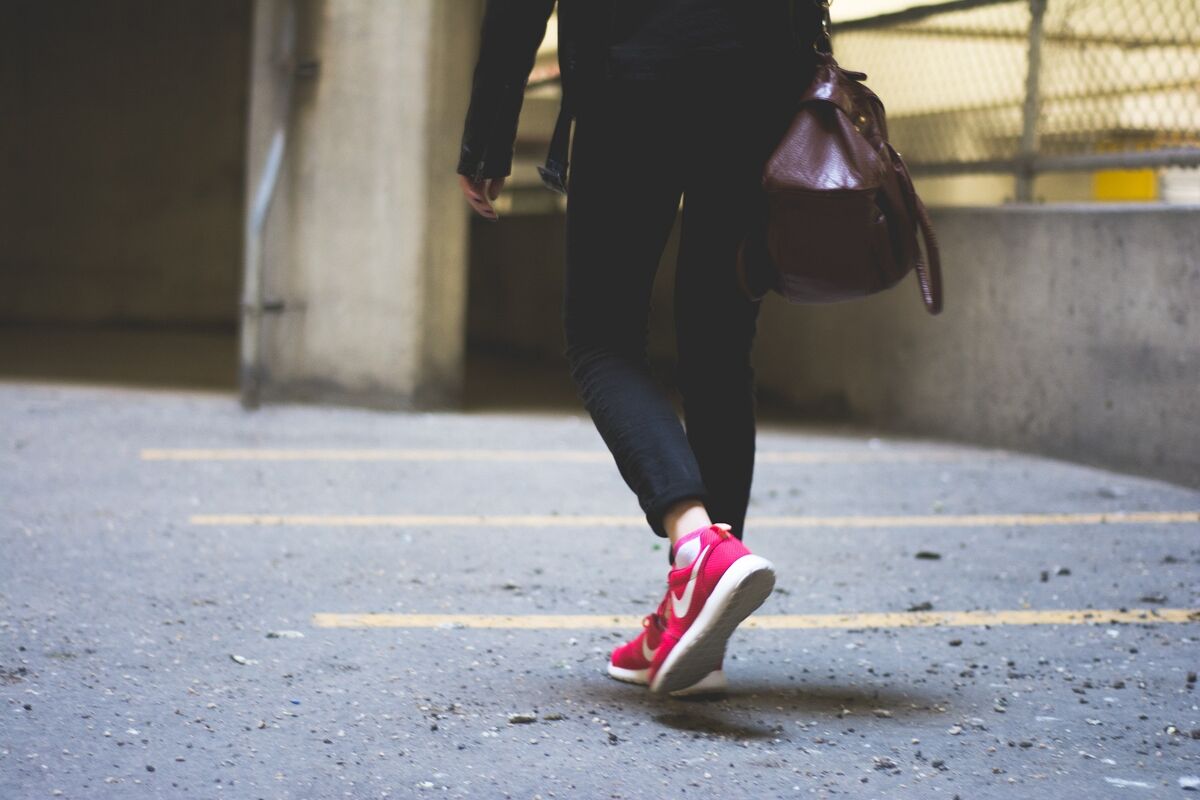Sexual harassment
71% of women of all ages in the UK have experienced some form of sexual harassment in public places*.
This figure, whilst horrifically high, sadly won’t be a shock to a lot of people reading this. Truth is, we all probably know someone who has been a victim of sexual harassment, we just might not realise it.
*2021 UN Women UK YouGov survey
Due to our anonymity promise, we are unable to take information from victims of sexual harassment. If you are a victim of sexual harassment:
Find out what support is available for you
What do we mean by sexual harassment?
The law says it’s when unwanted behaviour of a sexual nature takes place that violates your dignity, makes you feel intimidated, degraded or humiliated or creates an offensive or hostile environment.
We commissioned a major report in January 2023 from the University of Suffolk, which identified that there are men in the streets who feel they are able to abuse women for their own sexual enjoyment and are demeaning to women in public spaces.
Sexual harassment in all its forms can have serious and lasting effects on its victims. No matter your age, gender or sexual orientation, it can happen to anyone – it’s never OK and it’s never your fault.
Sexual harassment and domestic abuse are often linked:
Find out more about domestic abuse & what you can do about it
How can you report sexual harassment?
Is it happening right now? No matter where you are, in an emergency, always call 999.
If you have information about sexual harassment and you want to remain anonymous, call 0800 555 111 or fill in our online form:
- If you're happy to give personal information, you can tell the police by calling 101 or via their website.
- Do you have information about it happening on a train journey? Our charity powers an 100% anonymous service to speak up about sexual harassment on UK rail networks. Call 0800 783 0137 or fill in this form. If you're happy to give personal information, report what you know directly to the British Transport Police.
- Flashing/exposure - for example, exposing genitals in a public place and/or masturbating in public (this can also be done underneath someone’s clothing).
- Sexual comments/gestures - behaviour such as 'catcalling' and 'wolf-whistling', sexual propositions (verbal and non-verbal), and/or making comments about someone’s body.
- Stalking - classed as a pattern of fixated or obsessive behaviour which is repeated, persistent, intrusive and causes fear of violence or engenders alarm and distress in the person targeted - find out more.
- 'Cyberflashing' - for example, sending or showing sexual images and/or website content/links, commonly transmitted via AirDrop or Bluetooth.
- Intrusive/persistent questioning - when you’ve made it clear you don’t want to talk to someone - e.g. “Have you got a boyfriend/girlfriend?”, “Where are you going?” etc.
- Touching or rubbing against the clothed body of another person in a crowd (e.g. on a busy train or bus) as a means of obtaining sexual gratification.
- Watching explicit content in public areas - e.g. pornography, including in some cases trying to show this content to others nearby.
- 'Upskirting' - placing a camera beneath a person’s clothing to take a voyeuristic photograph without their permission.
- Standing too close when there is no need to/invading personal space - e.g. somebody standing/sitting unusually close to you on a bus or train service that isn’t very busy.
- Physical and/or sexual assault, rape - e.g. non-consensual touching, grabbing, groping, stroking, kissing etc. Sexual intercourse of any kind without consent.
- Details on who they are or what they look like.
- Details on the location, date and time it happened.
- Details on the crime itself – what type of harassment was being committed.
- Details on whether the perpetrator has been involved in multiple offences of sexual harassment.
- If you see recorded footage of sexual harassment posted online: details or links of the site/platform where it was posted, who posted it, and when.
What support is out there for victims?
Although you don’t have to report the crime to the police if you don’t want to, they will take reports of sexual harassment seriously.
Regardless of whether you choose to talk to the police, we strongly recommend that you contact Victim Support for support. You can call them on 0808 1689 111.
Remember that if you are feeling upset, or would like to talk with someone:
- Rape Crisis England and Wales - specialist resources for women who have experienced any form of sexual violence.
- Welsh Women's Aid: Live Fear Free Helpline, 0808 80 10 800. For confidential information, advice or support around violence against women, domestic abuse and sexual violence.
- Hersana CIC - specialist resources for Black women, girls and femmes who have experienced any form of sexual violence.
- Galop - specialist resources for LGBTQ+ people who have experienced abuse or violence.
- Survivors UK - specialist resources for men who have experienced any form of sexual violence.
- National Association for People Abused in Childhood - specialist resources for people who have experienced childhood sexual abuse.
- If you have used harmful or abusive behaviours towards a partner, you can reach out for confidential support here at Respect - specialist resources for those using abusive behaviours.
- If you are experiencing sexual thoughts or feelings towards children that concern you, you can reach out for confidential support at Stop It Now!
- White Ribbon UK is the leading charity engaging with men and boys to end violence against women.

Give information
Give information anonymously by phone on 0800 555 111 or online

Donate to us
Join our fight against crime by making us a donation today, and see how the money you give can help shape your community for the better.

Fearless - our youth service
Find out about Fearless, Crimestoppers' youth service for 11-17 year olds.
